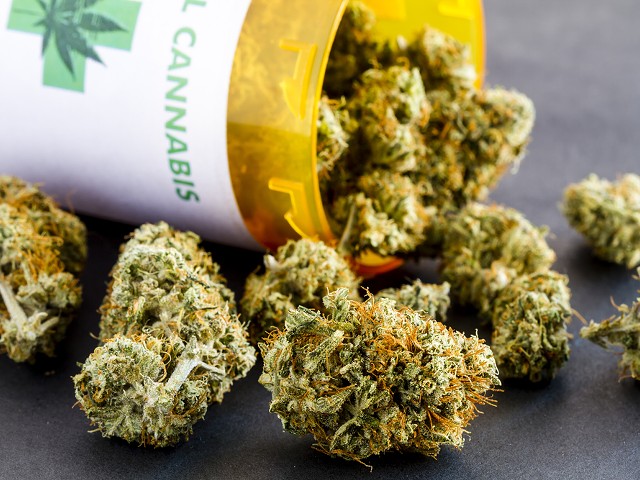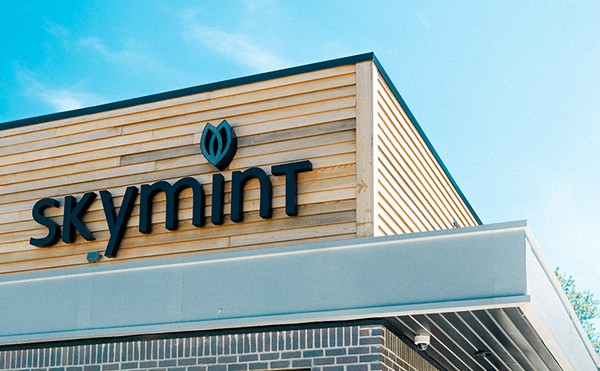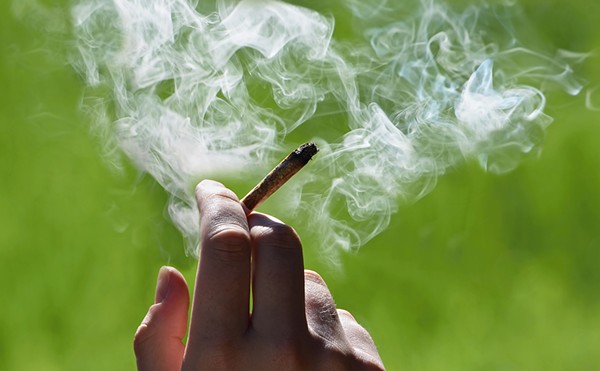There's a lot of stuff shaking on the local cannabis front, and some of the most positive stuff seems to be coming from the Sons of Hemp (SOH), an African-American organization seeking to ensure diversity in that emerging industry. I first learned of this group last year when they filed suit against the restrictive Detroit ordinance that has zoned most of the cannabis businesses in the city... well, out of business. That suit was refused by the state court, although SOH is pursuing it in federal court.
Andre Godwin, communications director for SOH, feels like he got burned by the city ordinance. "I couldn't even fill out the application after spending thousands of dollars to open up," he says. "My location was 800 feet from a church that had a day care, and across the street from a liquor store. They don't put these restrictions on any other business in Detroit. "
In the meantime, Godwin is working with SOH to make progress in other areas. They've begun a series of public community forums about cannabis. A few weeks ago the meeting was about investing in these businesses (no, don't rush out and buy a bunch of penny stocks). They drew a nice little crowd to the Sankofa Life Center on Woodward Avenue across from Palmer Park, where things like licensing, small business startups, and stocks were discussed.
In fact, a representative of the Michigan Black Chamber of Commerce spoke at the event. His salient message was that marijuana businesses are going to become very prominent, and that black people should not get left behind — again — when big economic changes are coming around.
This past weekend, SOH held a forum to discuss the cannabis industry and how it affects the citizens of Detroit. SOH even invited members of the Metropolitan Detroit Community Action Coalition to join the panel, but no one from the group responded to the entreaty.
On May 20, SOH will host the 2017 Health and Business Summit with the subtext "Don't get left out of the billion-dollar cannabis industry."
"What we're doing first and foremost is trying to educate the community about the cannabis business and how it will affect them as citizens of Detroit," says Godwin. "Number one is the economic effects on our community. The cannabis industry has already started to produce jobs. Second, it's reducing blight in the city. A lot of buildings that have been vacant for years now are coming to life and taking part in the rebirth of Detroit. Thirdly, for anyone that already is in this industry, cultivating, or making extracts, as black people we are less than one percent of this industry. We need to be taking our economic stake as well."
The idea of educating the community is very literal. Sons of Hemp University is in development, and Godwin says a cultivation class will be offered within a few weeks.
"The curriculum for cultivation has been turned in and I will be teaching it," says Godwin.
The first thing the class will cover is where to locate your garden. Other subjects include making your own supplements such as cal-mag, or homemade fish fertilizer. Classes will be offered at Sankofa and will also be available online.
The plan is to add classes on the endocannabinoid system and "cannabusinesses" soon. And if posts on the SOH Facebook page are an indication, cooking with cannabis will also be offered.
A lot of people have taught classes around here, but no one has put together a consistent and ongoing effort to create a school. The industry standard for cannabis education is Oaksterdam University in California's Bay Area. Oaksterdam attempted to establish a school in Flint a few years ago but it didn't work. So the SOH University is a welcome development.
This new world of cannabis as an out-from-underground culture can be daunting, even for folks who are cannabis friendly. It can be downright frightening to those who have no experience with it. Even SOH has probably had to learn some tough lessons as it navigates the terrain.
When the Michigan Medical Marijuana Act first passed, a lot of African-Americans were paranoid about coming out about their involvement with marijuana. And a lot of unethical opportunists were selling expensive, and possibly unnecessary, equipment to newbies. What this new world of cannabis needs more than anything else is education, so that people really understand what is going on.
That's where SOH can make a big difference — helping people navigate the unfamiliar terrain. With all the fear and heightened emotional reactions to the subject, SOH is a welcome influence on the Detroit scene.
There are potential pitfalls in the effort to put marijuana legalization on the fall 2018 ballot, but one of the biggest was avoided last week when the board of MILegalize voted to endorse the language generated by the Coalition to Regulate Marijuana Like Alcohol. MILegalize is the in-state organization that ran the drive to get the issue on the ballot in 2016 that was derailed by the state legislature. The Coalition is a coming together of in-state and national groups with the goal of a 2018 ballot question. Issues and egos have led to some whispering about a split between the two organizations. However, a few weeks ago state Rep. Jeff Irwin (D-Ann Arbor) circulated preliminary Coalition petition language that apparently quieted the whispers and brought broader agreement between groups.
One of the biggest differences between the 2016 and 2018 campaigns is money. MILegalize struggled to raise about $1 million through a series of fundraisers. When the Marijuana Policy Project's Lissa Satori spoke to the crowd at this year's Hash Bash she said, "The money is already in the bank," for the new campaign. I don't know for sure how much that is, but numbers I've heard are well over the amount MILegalize raised. That means that instead of worrying about how to raise money, activists can focus on getting their message out to people. Chances of a successful ballot drive are looking pretty good.
While the final language was still not public at press time, the broad outlines of the petition call to legalize the possession (up to 2.5 ounces), cultivation (12 plants), and use of marijuana, infused products, or hemp for anyone 21 and older. Tax money is focused on funding community colleges and vocational institutions, and for local governments that allow marijuana businesses in their jurisdictions. Communities can opt out of allowing marijuana business. There are no changes to the provisions of the MMMA, and it opens a path for individuals to have their non-violent marijuana conviction set aside.
There's a lot more in the 14-page document that I saw — details about licensing regulations, taxes, definitions of terms, etc. — but the basics of the law are as stated. Communities are allowed to opt out from allowing marijuana businesses, but there is the obvious carrot of tax money waved as an inducement to come along on this issue. In about 18 months we'll see where this is all at. I'm feeling pretty positive at this point.






